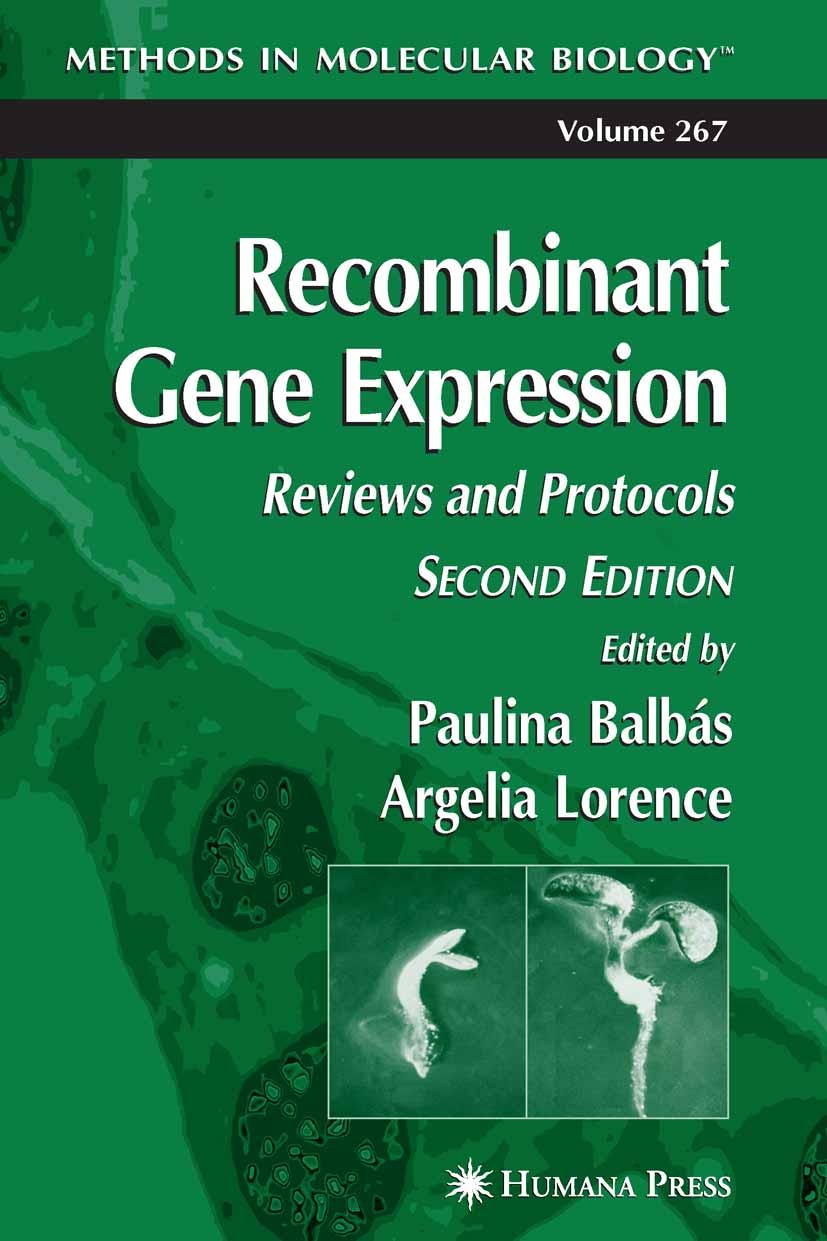| 書目名稱 | Recombinant Gene Expression | | 副標(biāo)題 | Reviews and Protocol | | 編輯 | Paulina Balbás,Argelia Lorence | | 視頻video | http://file.papertrans.cn/825/824091/824091.mp4 | | 概述 | Includes supplementary material: | | 叢書名稱 | Methods in Molecular Biology | | 圖書封面 |  | | 描述 | Since newly created beings are often perceived as either wholly good or bad, the genetic alteration of living cells impacts directly on a symbolic meaning deeply imbedded in every culture. During the earlier years of gene expression research, te- nological applications were confined mainly to academic and industrial laboratories, and were perceived as highly beneficial since molecules that were previously unable to be separated or synthesized became accessible as therapeutic agents. Such were the success stories of hormones, antibodies, and vaccines produced in the bacterium Escherichia coli. Originally this bacterium gained fame among humans for being an unwanted host in the intestine, or worse yet, for being occasionally dangerous and pathogenic. H- ever, it was easily identified in contaminated waters during the 19th century, thus becoming a clear indicator of water pollution by human feces. Tamed, cultivated, and easily maintained in laboratories, its fast growth rate and metabolic capacity to adjust to changing environments fascinated the minds of scientists who studied and modeled such complex phenomena as growth, evolution, genetic exchange, infection, survival, adaptation, | | 出版日期 | Book 2004Latest edition | | 版次 | 2 | | doi | https://doi.org/10.1385/1592597742 | | isbn_softcover | 978-1-61737-460-9 | | isbn_ebook | 978-1-59259-774-1Series ISSN 1064-3745 Series E-ISSN 1940-6029 | | issn_series | 1064-3745 | | copyright | Humana Press 2004 |
The information of publication is updating

|
|
 |Archiver|手機(jī)版|小黑屋|
派博傳思國際
( 京公網(wǎng)安備110108008328)
GMT+8, 2025-10-14 22:14
|Archiver|手機(jī)版|小黑屋|
派博傳思國際
( 京公網(wǎng)安備110108008328)
GMT+8, 2025-10-14 22:14


